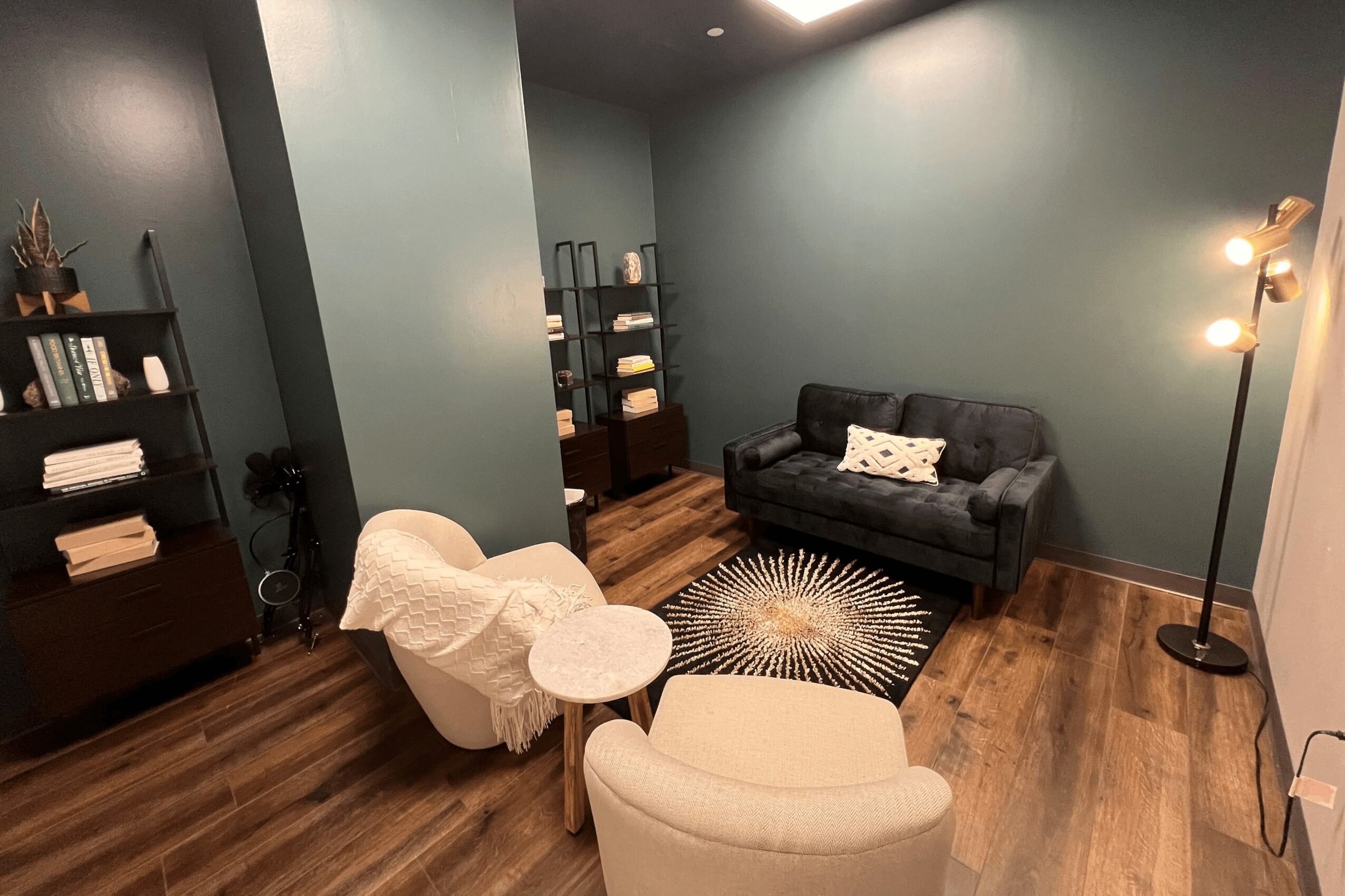

Today we’d like to introduce you to Tiffany Morish.
Hi Tiffany, we’re thrilled to have a chance to learn your story today. So, before we get into specifics, maybe you can briefly walk us through how you got to where you are today?
I grew up in poverty, in a community where mental health was only acknowledged during a crisis. We were taught to keep our home lives private, wary of outsiders and the very real threat of Child Protective Services in the 1980s and 1990s. Silence became our survival tool, but it came at a cost; we learned to suppress, not to share.
As I grew older, I realized those teachings were outdated. I longed for guidance and support, not secrecy. In my mid-twenties, I discovered my calling in the helping professions. I pursued an undergraduate degree in Communication Disorders and Sciences, initially aspiring to become a speech-language pathologist. After being rejected from SLP programs, I shifted paths and entered Rehabilitation Counseling, a decision that unlocked a deeper passion than I ever expected.
During my internship at the Hines VA in Chicago, I found my purpose in supporting others through life’s challenges. Shortly after, I moved to Texas, where my counseling career truly flourished. Over the years, I have expanded my expertise across specialties, and what brings me the greatest joy is witnessing my clients grow mentally, emotionally, and personally.
I’m sure it wasn’t obstacle-free, but would you say the journey has been fairly smooth so far?
My journey was not without financial struggles. I worked both full-time and part-time jobs while pursuing my education. In my junior year of college, I gave birth to my eldest child. When she turned one, I packed us up and moved six hours away from family to finish school at Southern Illinois University Carbondale. We settled into a small apartment, created a routine, and built a sense of stability together.
After graduating, I returned to my hometown and began my career. But two years later, I was laid off and suddenly unemployed. During this difficult time, I decided to return to school. Over the years that followed, I had two more children, each a few years apart. Balancing school, work, and motherhood became overwhelming, and eventually, I had to leave my full-time job and lean on my family for financial support.
The sacrifice was not easy, especially as a single mother of three. Yet, I pressed on. Earning my master’s degree became a turning point. The road smoothed out, and the opportunities that followed affirmed that every challenge and sacrifice had been worth it.
Great, so let’s talk business. Can you tell our readers more about what you do and what you think sets you apart from others?
I run a solo private practice located in Uptown Dallas, where I provide therapy to individuals in the area as well as virtually across the state of Texas. My practice specializes in trauma-informed care, and I am trained in EMDR therapy, somatic therapy, and ketamine-assisted therapy. Each of these approaches offers powerful ways to help clients process, heal, and regain a sense of balance in their lives.
What I am most proud of is becoming EMDR certified. The transformation I witness in clients through this work is incredible—seeing the relief on their faces when they begin to feel better, and knowing they can take the techniques we practice and apply them in their daily lives, is deeply rewarding.
In addition to therapy sessions, I also host virtual seminars open to anyone, with some offered free of charge. These workshops focus on teaching people practical skills for self-soothing and self-regulation. Sharing these tools on a larger scale is one of my favorite parts of the work I do.
At its core, my brand is about accessibility, empowerment, and trauma-informed care. I want people to know that healing is possible and that therapy can be both transformative and practical. Looking ahead, I am developing a system to support other therapists in their work, something I believe could be truly revolutionary for the field.
I am a clinician dedicated to serving Black and Brown communities, the LGBTQ+ community, and the trans community. My practice is built on inclusivity, respect, and care. I do not discriminate against any race, religion, or belief system.
For the women who come to me for support, I honor their trust by safeguarding their stories. I do not record personal details; I believe in complete privacy and full autonomy. My space is one where harmful rhetoric has no place, and clients can feel confident that they are entering a truly safe environment.
I also want people to understand that when choosing a therapist, it is their right to know whether that therapist offers a safe and affirming space for someone of their likeness. Everyone deserves care that not only supports their mental health but also respects their identity.
Before we let you go, we’ve got to ask if you have any advice for those who are just starting out?
For those just starting out, my biggest piece of advice is to build your clientele slowly, especially if you’re planning to open a solo practice. If possible, keep working a nine-to-five while you get your footing. The transition feels less overwhelming when you’re not depending on your practice as your only source of income right away.
I also recommend investing in business and financial literacy classes. Understanding how to run your practice like a business is just as important as being a great clinician. For example, I started out as an LLC for tax purposes and will soon be moving into an S-Corp. Educating yourself on taxes, income management, and overall financial planning will save you stress down the road.
Looking back, I wish someone had told me earlier that marketing would be my biggest expense and one of the most important. Learning how to market effectively and understanding how to manage your taxes are two things that would have set me on the path to success much sooner.
My advice: put yourself out there. Network, market your services, and don’t be afraid to test out new ideas. Word of mouth is powerful, but so are platforms like TikTok and other social media. The more people see you and connect with your message, the more opportunities you’ll create to grow your practice.
Pricing:
- Fee Initial Intake Session (60 minutes) $130 – $175
- Individual Session (50–55 minutes) $130
- EMDR Therapy Session (60–75 minutes) $145 – $185
- Emotional Support Animal (ESA) Documentation $85 – $130
- FMLA/STD Documentation $85 – $130
Contact Info:
- Website: https://www.living365.org
- Instagram: https://www.instagram.com/living.365.counseling/
- LinkedIn: https://www.linkedin.com/in/tmorish




Image Credits
Lucid Private Offices










